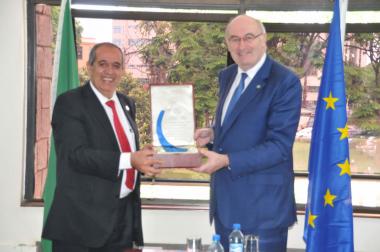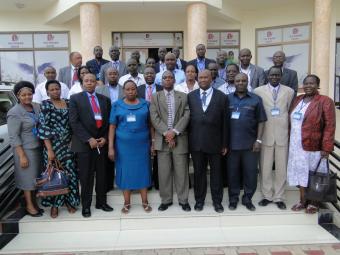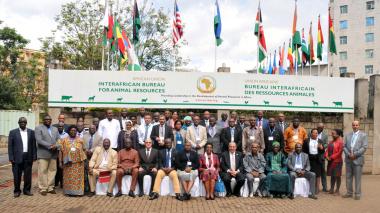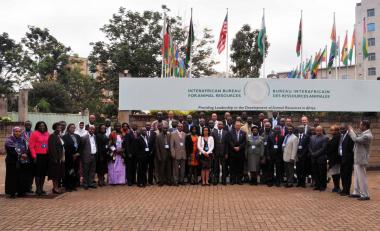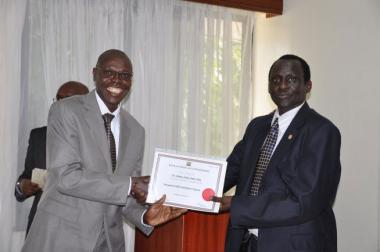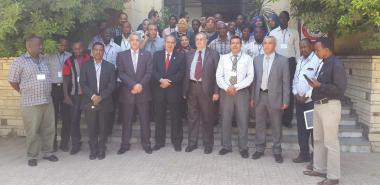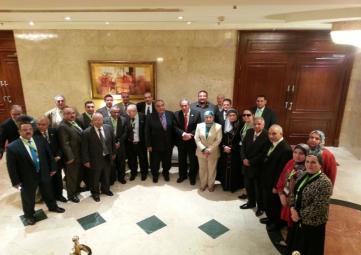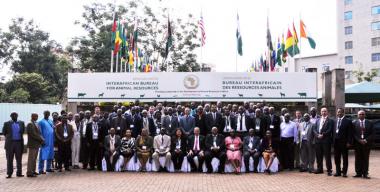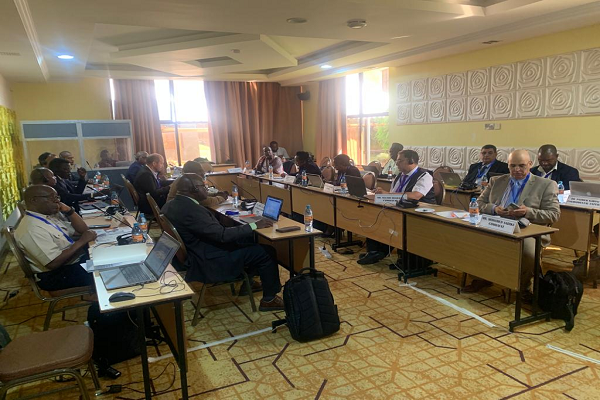
The Second Meeting of the Think Tank Executive Committee (TTEC) for the African Fisheries Reform Mechanism (AFRM) recently convened at Lake Naivasha Resort Hotel in Naivasha, Kenya from 5-9th September 2023. Organized under the FishGov2 Project and funded by the European Union, in collaboration between the African Union Interafrican Bureau for Animal Resources (AU-IBAR) and AUDA-NEPAD, this gathering focused on reviewing and enhancing Position Papers and Knowledge Products with the aim of supporting sustainable fisheries and aquaculture practices across Africa.
The TTEC meeting attracted 23 participants representing various stakeholder groups, including African Union Member States (AU-MS), Regional Economic Communities (RECs), Regional Fisheries Bodies (RFBs), Regional Fisheries Management Organizations (RFMOs), specialized agencies, Centers of Excellence, experts, and AU-IBAR.
Mr. Obinna Anozie, on behalf of Dr. Huyam Salih, the Director of AU-IBAR, delivered opening remarks, reminding participants of the AFRM's origins and its provisions for the establishment of Working Groups on Governance, Aquaculture, Fish Trade, and Small-Scale Fisheries. The knowledge products developed by these Working Groups serve as a foundation for policy coherence and coordination within the AFRM.
Dr. Patrick Karani skillfully moderated the opening session, featuring enlightening remarks from notable representatives. Mr. Sadiki Mohamed, on behalf of the Chair of African Platform for Regional Institutions for Fisheries, Aquaculture, and Aquatic Systems (APRIFAAS), emphasized the significance of this meeting, building upon the first TTEC gathering. Dr. Yoseph Mamo of COMESA highlighted outcomes from the Governance Group discussions, focusing on knowledge products related to policy briefs regarding fish trade and its associated barriers. Dr. Khallahi Brahim, representing Regional Fisheries Bodies (RFBs) acknowledged the vital role of RFBs in the TTEC and encouraged constructive discussions drawing from indigenous examples and experiences to empower youth and women. Dr. Noble Asare, speaking for the Centers of Excellence (CoEs), reflected on the existing strategic partnership between CoEs and AU-IBAR and their efforts in generating knowledge products.
Mr. Obinna Anozie further provided a comprehensive overview of the workshop, detailing its background, objectives, expected outcomes, and structure. He underscored the AFRM's overarching objective to strengthen governance, minimize duplication, and advance African fisheries development. The mechanism facilitates coordination, information sharing, knowledge generation, advocacy, policy development, and resource mobilization for fisheries and aquaculture across Africa.
The Second TTEC Meeting aimed to synthesize issues identified by AFRM Working Groups and to develop position papers, advocacy notes, and policy briefs. It promoted inclusive discussions on management measures involving experts, AU Member States, Non-State Actors (NSAs), policy makers, private sector representatives, and women's groups.
At the conclusion of the workshop, 15 Knowledge Products addressing priority issues related to Governance, Aquaculture, Trade, and Small-Scale Fisheries were reviewed, refined, and finalized for presentation to the AFRM Advisory Council.
The technical session included presentations on Policy Briefs and Knowledge Products from AFRM Working Groups. Notable presenters shared insights and research findings on various aspects of African fisheries.
Working Groups identified critical priority areas for policy briefs, policy notes, and advocacy, focusing on Aquaculture, Fish Trade, Small Scale Fisheries, and Governance.
General Recommendations:
The meeting concluded with several recommendations, including leveraging Egypt's Tilapia Aquaculture success, utilizing indigenous knowledge for youth and women empowerment in fisheries, and scaling up regional policies for broader impact. Collaboration with AWFISHNET was highlighted to integrate and mainstream knowledge products effectively.
In summary, the Second TTEC Meeting marked a significant milestone in advancing sustainable fisheries and aquaculture practices in Africa under the FishGov2 Project, funded by the European Union, bringing together diverse stakeholders to address pressing issues and develop actionable knowledge products.

